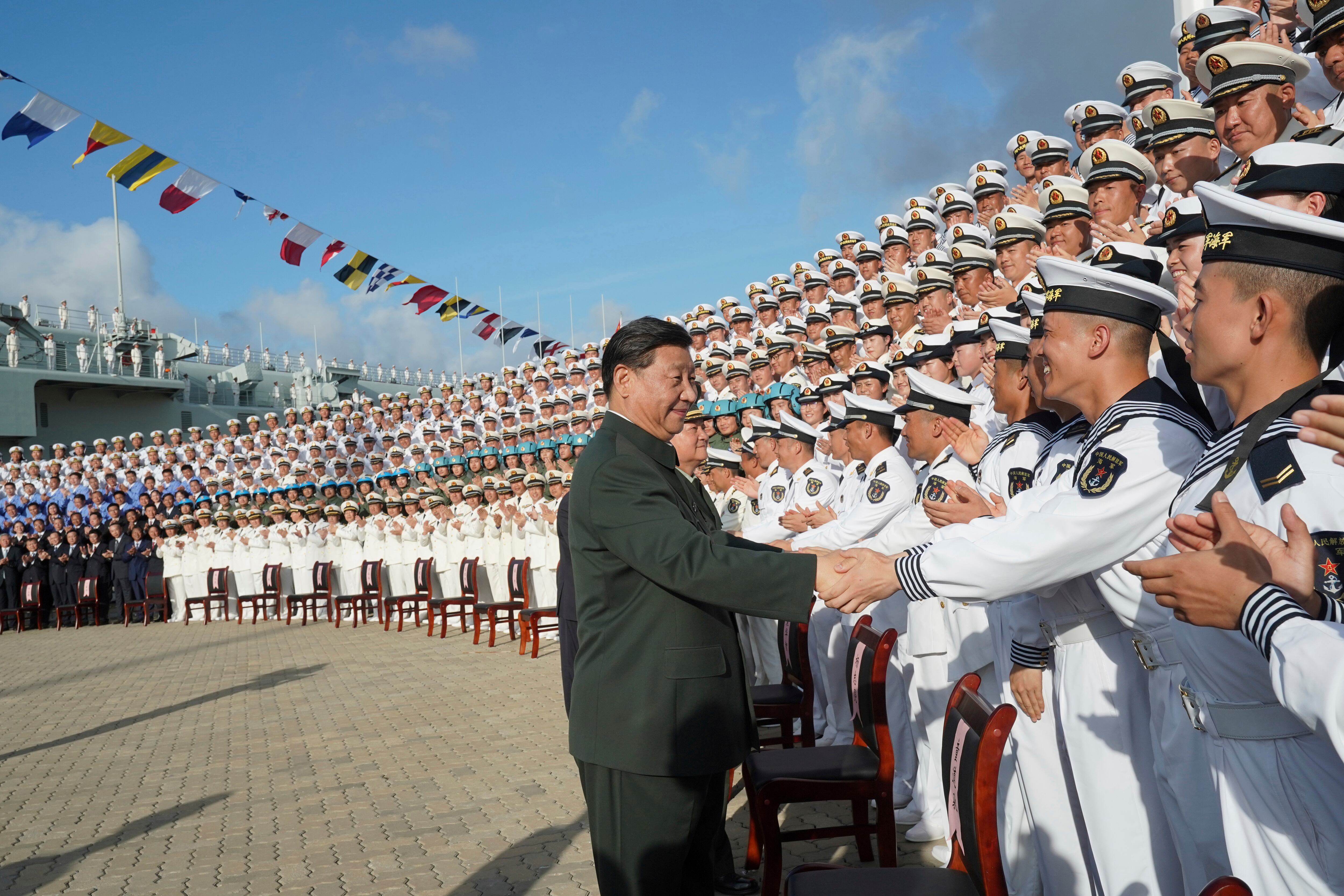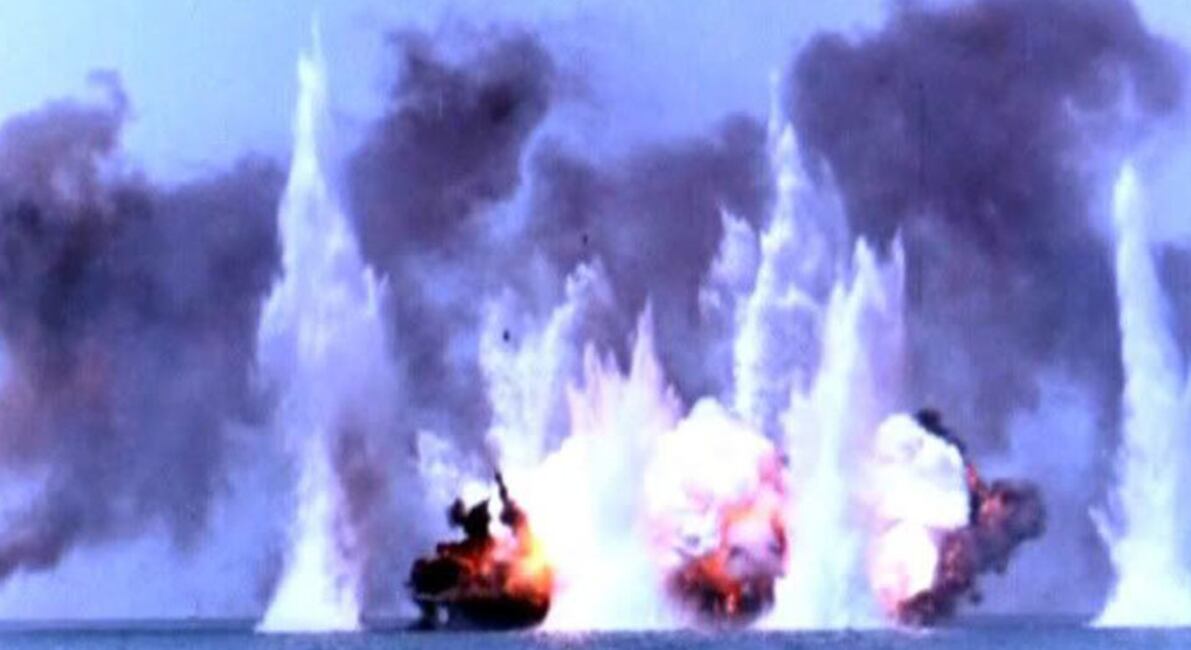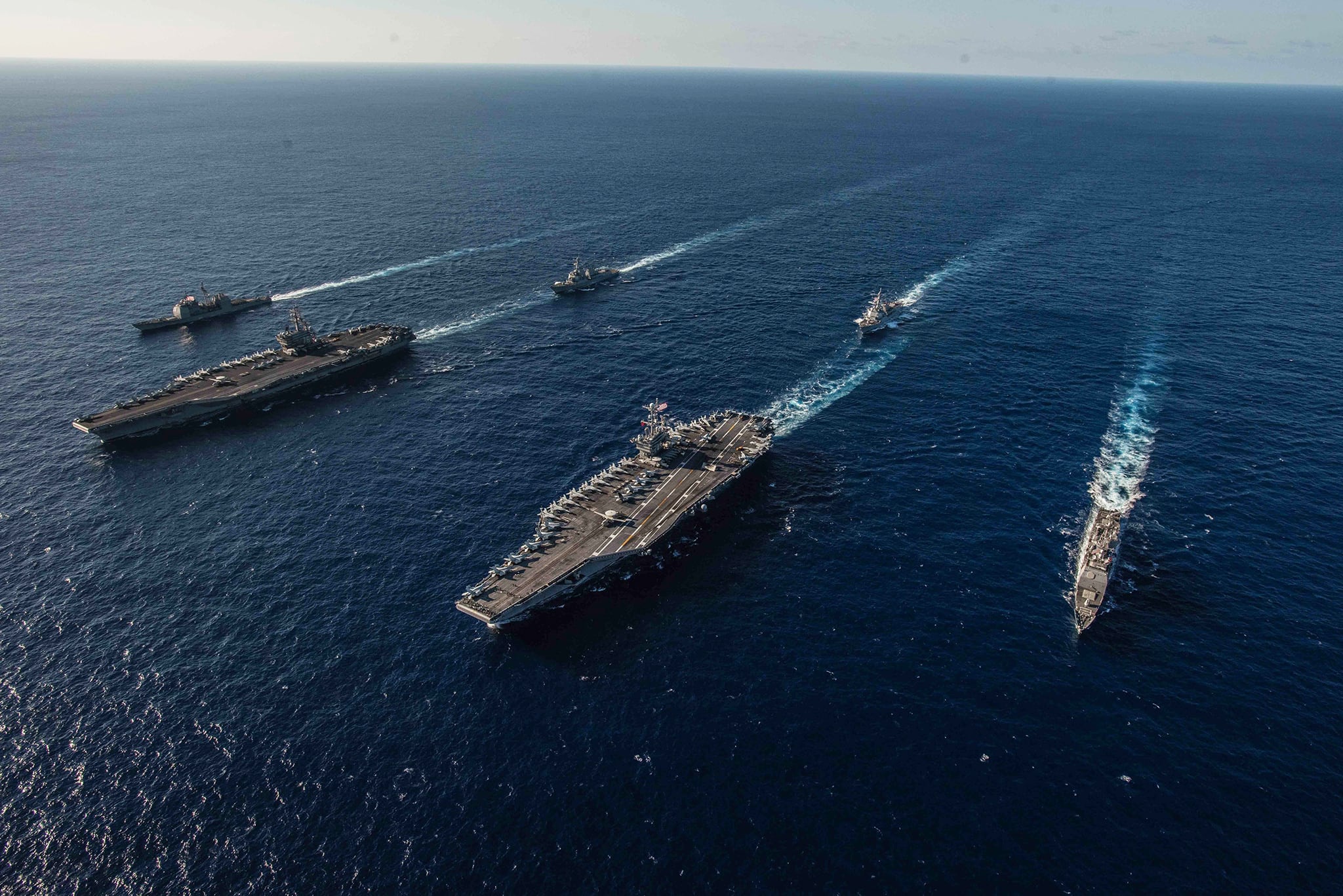Dr. Sarah Paine’s 2012 book “The Wars for Asia” is a meticulously researched and fascinatingly narrated first-rate piece of scholarship that belongs on the top shelf of any serious China watcher.
I was therefore very disappointed to read her recent piece with Dr. Bruce Elleman in Navy Times, in which the authors espouse an ultra-alarmist view of the China challenge.
By their telling, China has embarked on imperial subjugation of its neighbors, is engaged in debt-trap diplomacy to project power and influence abroad, and has global ambitions to construct a “24-hour surveillance state for us all.”
The good doctors even draw a parallel of modern China to Nazi Germany.
Wow. What a menace! We should all be very wary of such a threat.
The problem with the narrative above is that it’s a caricature that relies on highly misleading interpretations of Chinese behavior, and it’s free of the nuance with which we must treat a complex challenge like China.
RELATED

To be sure, China is clearly doing things that are contrary to our interests.
It is eroding American military preeminence in the Asia-Pacific, failing to improve global governance standards by offering conditions-free financial assistance to poor countries, and pushing a notion of “cyber sovereignty” that is at odds with our vision of an open internet.
It also employs strong-arm economic tactics at home by restricting market access to foreign firms. It mandates joint ventures and technology transfers. It engages in rampant intellectual property theft for economic advantage.
These initiatives plainly deserve very serious pushback. But to claim that China is a global danger — reminiscent of Nazi Germany and intent on ensnaring us in a network of worldwide surveillance — is sheer paranoia.
RELATED

Let’s start with China’s behavior towards its neighbors.
According to Paine and Elleman, China “seems intent on subjugating its neighbors and poorest trading partners,” and has employed the Belt and Road Initiative to trap participants in a debt spiral from which they can’t recover.
Really? The numbers don’t bear this out — not even one bit.
China is one of the largest trading partners of every single member country in the Association of Southeast Asian Nations; its bilateral trade with this bloc has grown steadily year after year.
China has no military bases in any ASEAN country, has no coercive power over the governmental decision-making in any Southeast Asian nation, and does not forcibly extract finances or resources from anywhere in the region.
If this is imperial subjugation, it’s of an awfully soft variety. Indeed, most Southeast Asian countries — while rightly wary of China’s growing influence and presence — are quite happy to continue trading with China and do not wish to be forced to choose between the two superpowers.
Meanwhile, the much maligned debt-trap diplomacy — by which China hooks its prey on debt in order to channel its influence abroad — turns out to be a fiction.
According to research done at Johns Hopkins University’s School of Advanced International Studies and Boston University’s Global Policy Development Center, China is the majority debt-holder in a total of four countries worldwide and Sri Lanka —a key concern of the professors — is not one of them.
The fabled Hambantota port had been planned by Sri Lanka long before China — which accounts for a tiny portion of Sri Lankan debt — got involved.
To be clear, Chinese expansion into the Indian Ocean merits close attention by the U.S. However, a sober analysis of global finance indicates that China is, for the most part, not responsible when debt-distressed countries exceed International Monetary Fund debt sustainability standards.
Rather, European and American banks tell most of the story regarding the world’s rising debt levels.
Debt-trap diplomacy, quite simply, does not exist, at least not in China’s repertoire of foreign policy instruments.

The doctors also warn us of the danger of China’s pivot to the sea, and urge us to “counter this imperial expansion.”
Aside from the inexplicable reference to imperialism — China isn’t an expanding imperial power today — their exhortation seems to be predicated upon a zero-sum view of seapower: If China is gaining, then we are losing.
But seapower is and can be cooperative. Countries can work together to enhance maritime security, conduct multilateral naval diplomacy and build partnerships. There is no reason why the U.S. and China can’t work together at sea to reach these ends.
The doctors will respond: How can we work together with an authoritarian country that represses its own people and engages in regionally destabilizing behavior?
My answer: We work with Saudi Arabia all the time. KSA is more repressively autocratic and regionally destabilizing than China by a long shot, and we have no problem working with them.
Having like-minded governments has never been a prerequisite for cooperative seapower.
The good doctors also urge us to be fully ready for war with China. This is admittedly a prudent exhortation — we should always be ready for military combat operations against a strategic competitor that might threaten our allies and partners.
Taiwan presents an especially compelling case of a democracy that America should be fully prepared to defend against Chinese aggression. However, the doctors also seem to be urging us to establish and maintain a constant war footing.
At a time when American cities are under urgent threat from climate change, when rabid nationalism is threatening the liberal rules-based international order, and when economic inequality is tearing at our political and social fabric, we do not have the resources or the national will to maintain a permanent war footing.
Climate change and the preservation of the rules-based international order are issues where we should be seeking Chinese cooperation, not antagonizing China to foreclose the possibility of such cooperation.
RELATED

Paine and Elleman accuse Beijing of aspiring to surveil the entire world, but that’s rooted in the Chinese Communist Party’s conduct at home, which can be characterized as a hard but responsive form of authoritarianism (admittedly edging towards totalitarianism in Xinjiang).
China’s practices at home are paralleled by a global resurgence in authoritarian populism.
Hungary and Poland have explicitly stated their goals to construct “illiberal democracies." The Philippines used extrajudicial killings of suspected drug-offenders as a routine tactic in a counter-drug war. Russia has doubled down on its repression of journalists and opposition politicians after successfully interfering in the U.S. election on behalf of Moscow’s preferred candidate.
This is not to excuse Beijing’s harsh and discriminatory practices, but it is important to note that the CCP is not alone in repressing civil society and vulnerable minorities.
More to the point, China has not demonstrated any intent to export its version of authoritarianism abroad. Cornell University’s Jessica Chen Weiss has convincingly argued that China, while intent on making the world safe for its autocratic version of governance, is not actively trying to export it.
China’s foreign policy is predicated on the sanctity of nonintervention, a principle that is deeply felt, both in officialdom and in the population at large, after a century of foreign depredations and atrocities on Chinese soil.

Take a moment to consider that perhaps as many as 15 million Chinese died during a 15-year occupation by Japanese forces before World War II ended.
That imponderable death toll left a deep wound in the Chinese psyche.
Bogeyman theories about a web of global surveillance run up against the reality that China has remained at peace with the rest of the world since its border conflict with Vietnam ended in 1991.
That’s a record of admirable restraint that is unmatched by the other great powers.
To the extent that China has global ambitions, they can best be characterized as maintaining a stable geopolitical environment for continued economic growth at home. Accusations that China wants to encircle the world in a web of global surveillance represent an absurd caricature of China that finds no basis in the recent historical record of Chinese behavior.
I have trouble countenancing Paine and Elleman’s comparison of China to Nazi Germany as a serious assertion. However, it is of a piece with the recent Sinophobia that has infected policy circles in and out of American government.
The “global menace” that confronts us is a significant contributor of troops and police to United Nations peacekeeping forces and is a signatory to the Paris Climate Accords and the Joint Comprehensive Plan of Action, and actively participates in counter-piracy missions in the Middle East and East Africa.
It is worth remembering that, on the global stage, this menace has actually acted quite responsibly.
China is a conditional supporter of the rules-based international order and is competing with the US for regional primacy and global legitimacy. So we must compete, but we also must cooperate.
Ultimately, we must engage and balance, just as we’ve done for decades — until the latest China scare took hold.

Lt. Cmdr. James Boyle is an active duty naval intelligence officer pursuing a master of arts degree in Asian Studies at Georgetown University’s School of Foreign Service. He has spent the past five years working on Asia-Pacific security issues, including three years at Indo-Pacific Command in Hawaii and two years at Destroyer Squadron 15 in Yokosuka, Japan. He has deployed to Afghanistan, Bahrain and elsewhere throughout the Middle East and Asia. His views are his own and do not necessarily reflect those of the Department of Defense, U.S. Navy, Georgetown University, Navy Times or its staffers.





